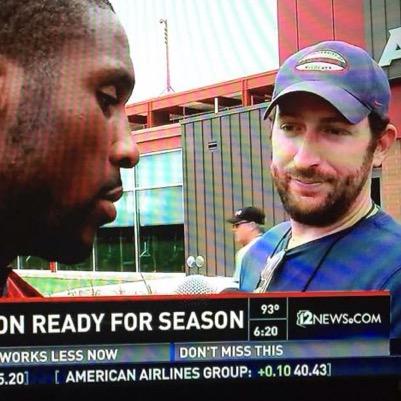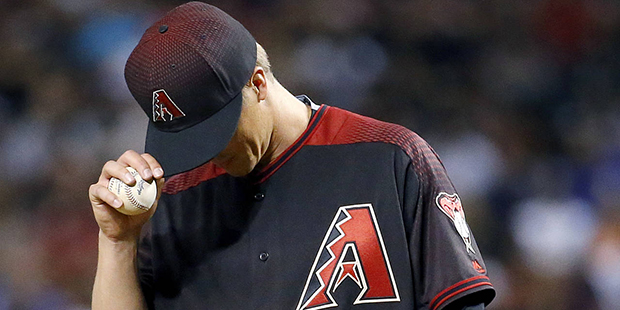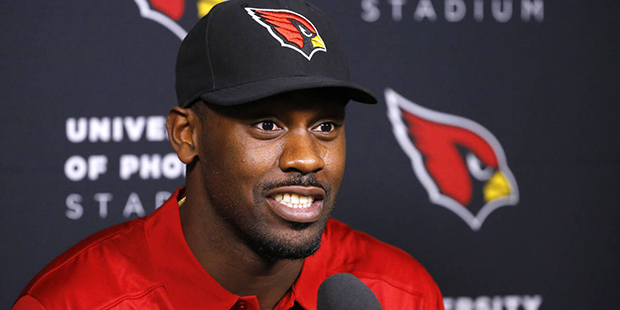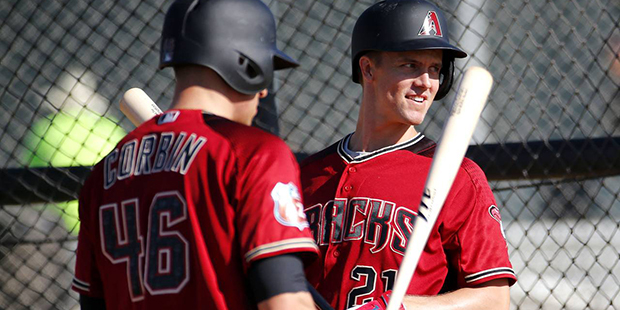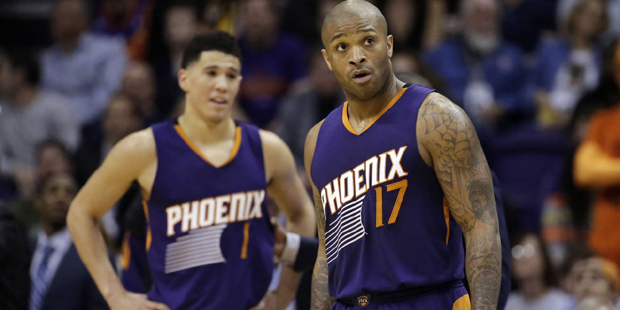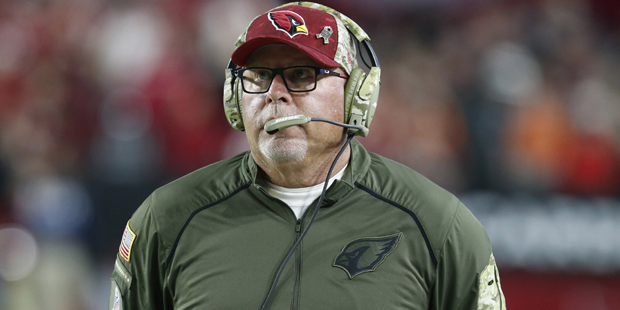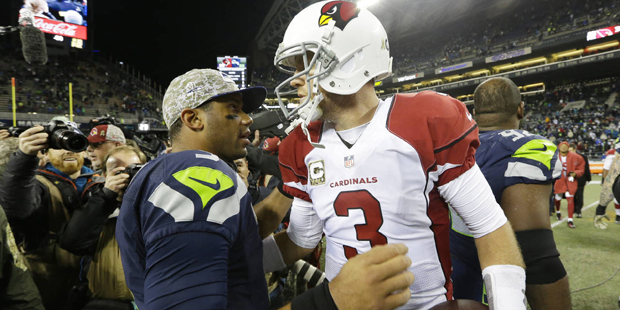Suns will have money to spend, but no star will take it
Nov 30, 2011, 9:18 PM | Updated: 10:35 pm
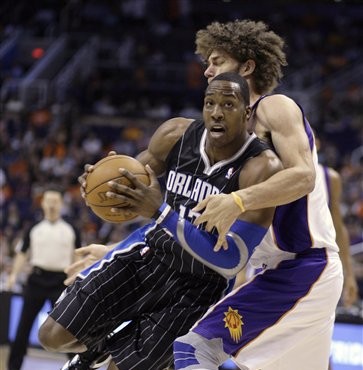
The Phoenix Suns had it all planned out.
The contracts of Steve Nash, Mickael Pietrus and Vince
Carter would all be off the books, with their respective
departures leaving the team with roughly $29 million in contracts on the books.
With players like Chris Paul, Deron Williams,
Boris Diaw and Dwight Howard set to hit
the free agent market, Summer 2012 would be known as the
Summer of the Suns, where the team would reverse its
fortunes and become a contender, much like it did back in
2004.
The Arizona Republic’s Dan Bickley says
this season will be the team’s chance to impress that
group, and Arizona Sports 620’s John
Gambadoro tweeted that the Suns could be the only team
with enough cap space to sign two marquee free agents next
summer.
Sounds great, but I’ve got three words for you: Not.
Gonna. Happen.
Dreaming is free and it sure is nice to imagine Howard
sporting a Suns jersey while throwing down lobs from one
of the game’s best young point guards, however Jared
Dudley is more likely to win the NBA’s slam dunk contest
than the Suns are to sign a young superstar.
It’s not that Phoenix would not be willing to pay, because
it’s unfathomable to think the team would have made a run
at the game’s elite with lowball offer. The Suns may be
cheap, but they’re not dumb. Or is it that the Suns may be
dumb, but they’re not cheap? Hard to remember, but I
digress.
While money does indeed talk, a player will look at other
factors when choosing between similar offers, and today’s
stars are more likely to choose the Knicks, Nets,
Clippers, Lakers, Bulls or Heat long before the Suns.
These are not your father’s Phoenix Suns, who once had an
owner who was so well regarded that players would take
less money to play for Jerry Colangelo’s team.
Danny Manning, Wayman Tisdale and A.C. Green all took less
than market value in order to wear purple and orange, and
they helped make the Suns a championship contender. More
recently players like Tim Thomas, Jalen Rose and Grant
Hill all chose Phoenix because of the chance to
rehabilitate their careers and, maybe more importantly,
win.
The former isn’t really a concern for any player the team
would be targeting as a franchise-changing talent, and the
latter isn’t even really a possibility right now.
As ESPN’s John
Hollinger points out, the new CBA did little to help
the Suns, who are in bad shape if the goal is to contend
in the immediate future.
No CBA can undo the damage Sarver has done to the team in
the past few years. In an attempt to save money, he gutted
one of the most exciting teams in the league and is left
with a roster of middling, overpaid players and Steve
Nash. Nash is leaving sooner or later and the Suns will
have to seriously consider moving him now if they want
anything back.
Hollinger goes on to say that it’s going to be a
frustrating few years for Suns fans, and he’s right. Quite
frankly, there isn’t much going for the team at the
moment, and there will be no quick fix via 2012 free
agency.
While it’s true that many big-time players will be
changing addresses in the near future, the majority will
be sent packing via trades, an option the Suns did not use
with Amare Stoudemire (and rightfully so, they did
go to the Western Conference Finals) and thus far refuse
to even consider with Steve Nash.
Throughout their history, the Phoenix Suns have done a
great job of staying competitive, often times by adding
solid free agents to an already impressive roster. The
closest they’ve come to adding a top talent was when they
signed Steve Nash in 2004, but even then it wasn’t a
maximum contract and most thought the team overpaid for
the player. The Suns were bidding against only the
Mavericks, and simply offered the future MVP more money.
Great move, but not at all comparable to what the team is
hoping to do in 2012.
Next summer the Suns would be competing against multiple
teams for the services of great young players, each of
whom would instantly turn a franchise’s fortunes around.
However, today’s stars are fond of joining forces and
forming “super teams,” a strategy that lends itself to an
unbalanced league that, unfortunately, will not lead elite
players to the desert.

